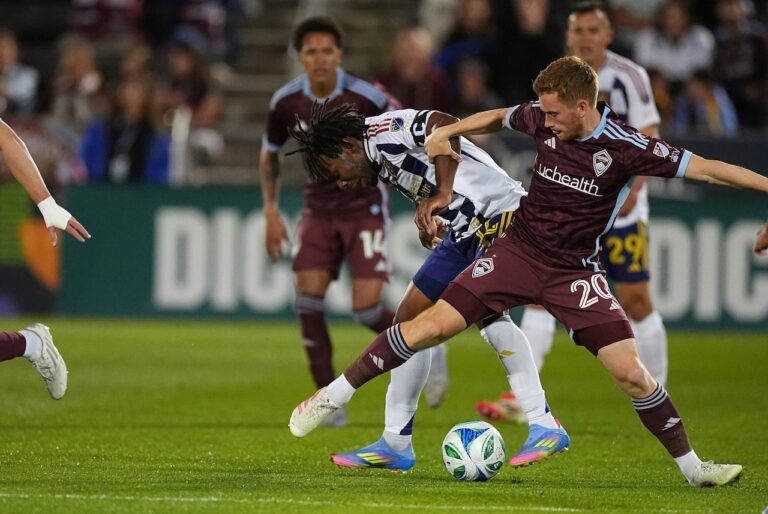History Unveiled: The Evolution of the FIFA Club World Cup as 32 Teams Clash for Glory
The FIFA Club World Cup: A Historic Tournament with Global Stakes
The FIFA Club World Cup promises to be a landmark event as it kicks off this Saturday, the 14th, in the United States. This year marks a significant evolution in the tournament, featuring a record 32 clubs from all continents competing for the coveted title of “best team in the world.” However, this development is far from a new concept in the world of football.
Since its inception in 1960, the tournament has undergone many transformations, with various formats and championships aiming to crown the world’s best football club. Today, let’s delve deeper into the storied history of the FIFA Club World Cup and its predecessors.
The Early Years: Copa Intercontinental (1960-1979)
The inaugural international club competition—retroactively known as the Copa Intercontinental—was established with the support of UEFA and CONMEBOL. This tournament was contested between the champions of the Libertadores (South America) and the European Cup (now UEFA Champions League). The format involved two legs—one match on each continent—with a possible tiebreaker if necessary.
Notably, the Santos team, featuring the legendary Pelé, won the trophy twice during this period, securing victories against Benfica in 1962 and AC Milan in 1963. The format changed in 1969, introducing penalty shootouts as a tiebreaker. Interestingly, the tournament was not held in two years: 1975 and 1978, primarily due to waning interest from European teams.
Copa Intercontinental Champions (1960-1979):
- 1960: Peñarol
- 1961: Benfica
- 1962: Santos
- 1963: Santos
- 1964: Internazionale
- 1965: Intercontinental
- 1967: Racing Club
- 1968: Manchester United
- 1969: Milan
- 1970: Milan
- 1971: Ajax
- 1973: Peleton, Matheis
Shifts in Format (1980-2004)
The competition, still referred to as the Copa Intercontinental, saw a pivotal shift in format beginning in 1980. Instead of two-legged matches, the final was played as a single match, traditionally hosted in Tokyo, Japan. This modernization had the backing of major corporate sponsorship, most notably from Toyota, which provided additional incentives, including a trophy called the “Toyota Cup” for the best player of the final.
Brazil’s Flamengo claimed the first trophy under this new format in 1981 by defeating Liverpool 3-0. However, it was the São Paulo FC that cemented its place in history with its back-to-back victories in 1992 and 1993—memorable wins against Barcelona and AC Milan, respectively.
Intercontinental Champions (1980-2004):
- 1980: Nacional
- 1981: Flamengo
- 1982: Peñarol
- 1983: Grêmio
- 1984: Independiente
- 1985: Juventus
- 1986: River Plate
- 1987: Porto
- 1988: Nacional
- 1989: Milan
- 1990: Milan
- 1991: Red Star Belgrade
- 1992: São Paulo
- 1993: São Paulo
- 1994: Vélez Sarsfield
- 1995: Ajax
- 1996: Juventus
- 1997: Borussia Dortmund
- 1998: Real Madrid
- 1999: Manchester United
- 2000: Boca Juniors
- 2001: Bayern Munich
- 2002: Real Madrid
- 2003: Boca Juniors
- 2004: Porto
The Birth of the FIFA Club World Cup (2000 and Beyond)
In January 2000, FIFA introduced the first official edition of the FIFA Club World Cup. This tournament was held in Brazil across two major cities: São Paulo and Rio de Janeiro. This edition featured clubs from various continents, including Brazilian sides, Corinthians and Vasco da Gama, resulting in a 100% Brazilian final, where Corinthians triumphed over Vasco in a penalty shootout.
FIFA revived the tournament in 2005 under the new format, establishing it as an annual event with rotating host nations. This new direction included a range of clubs across the globe, but since 2007, the competition expanded to include the host nation’s representative as well.
Recent FIFA Club World Cup Champions (2005-2023):
- 2005: São Paulo
- 2006: Internacional
- 2007: Milan
- 2008: Manchester United
- 2009: Barcelona
- 2010: Inter Milan
- 2011: Barcelona
- 2012: Corinthians
- 2013: Bayern Munich
- 2014: Real Madrid
- 2015: Barcelona
- 2016: Real Madrid
- 2017: Real Madrid
- 2018: Real Madrid
- 2019: Liverpool
- 2020: Bayern Munich
- 2021: Chelsea
- 2022: Real Madrid
- 2023: Manchester City
The Future: A Global Showdown in 2024
Looking ahead, FIFA intriguingly plans to introduce a revamped format starting in 2024. This tournament will feature 32 teams competing in a quadrennial format similar to the FIFA World Cup and aims to foster global recognition of a single, clear “world champion” yearly.
This new iteration will see winners from continental championships face off in a knockout structure, while the European champion earns an automatic spot in the final. Clubs from CONCACAF will play a “Derby of the Americas” for a slot in the semi-finals, showcasing the intense competitiveness of club football worldwide.
Only time will tell how this new chapter will unfold, but with the tournament history rich with iconic teams and thrilling matches, the FIFA Club World Cup is set for an exhilarating future.






